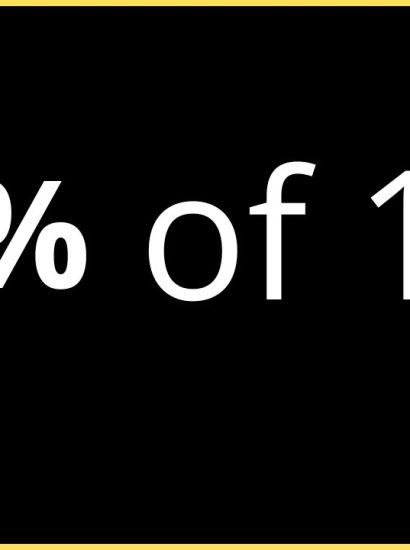Marketing is essential for business growth, but not all strategies are created equal. While ethical marketing builds trust and drives success, illegal marketing can harm consumers, tarnish reputations, and result in severe legal consequences.
Illegal marketing encompasses deceptive, unethical, or fraudulent practices that violate advertising and consumer protection laws. Whether intentional or accidental, such activities can have lasting impacts on a business. This guide explores the types of illegal marketing, the risks involved, and how to stay compliant to protect your brand.
What Is Illegal Marketing?
Illegal marketing refers to advertising and promotional activities that break the law, deceive consumers, or exploit vulnerable audiences. These practices are prohibited under local, national, or international laws designed to protect consumers and ensure fair competition.
Examples of Illegal Marketing Practices
- False Advertising: Making misleading claims about a product or service.
- Bait and Switch: Advertising a low-priced product to lure customers, only to upsell a more expensive option.
- Data Privacy Violations: Using personal data without consent for marketing purposes.
- Spam Marketing: Sending unsolicited emails or messages that violate anti-spam regulations.
- Targeting Vulnerable Audiences: Exploiting children, the elderly, or other vulnerable groups.
Types of Illegal Marketing Practices
False or Deceptive Advertising
- Description: Promoting false claims about a product or service’s quality, benefits, or features.
- Example: Claiming a weight-loss supplement guarantees results without scientific proof.
Bait and Switch Tactics
- Description: Advertising a product at a low price but pressuring customers to buy a higher-priced item.
- Example: Promoting a discounted smartphone that’s “out of stock” to upsell a more expensive model.
Pyramid and Ponzi Schemes
- Description: Illegal business models that rely on recruiting participants rather than selling actual products or services.
- Example: Promising high returns for recruiting others without delivering legitimate value.
Privacy Violations
- Description: Collecting, storing, or using customer data without proper consent.
- Example: Sending marketing emails to individuals who haven’t opted in.
Fake Reviews and Testimonials
- Description: Posting fabricated reviews or paying for fake testimonials to influence consumer decisions.
- Example: Creating multiple fake accounts to leave positive reviews on a product.
Exploitative Advertising
- Description: Using fear, guilt, or false urgency to manipulate consumers into making purchases.
- Example: Claiming a product will “sell out in minutes” when there’s no actual demand.
Consequences of Illegal Marketing
Engaging in illegal marketing practices can lead to severe repercussions for businesses, including:
Legal Penalties
- Heavy fines, lawsuits, or criminal charges depending on the violation.
- Example: The Federal Trade Commission (FTC) in the U.S. regularly fines companies for deceptive practices.
Damage to Reputation
- Losing customer trust and tarnishing your brand’s image.
- Example: A company caught using fake reviews may struggle to regain credibility.
Loss of Revenue
- Legal settlements, fines, and lost customers can result in significant financial losses.
Regulatory Scrutiny
- Increased monitoring by authorities, leading to stricter compliance requirements for future campaigns.
Suspension of Operations
- In severe cases, businesses may face suspension or a permanent ban from operating.
How to Avoid Illegal Marketing Practices
Stay Informed About Marketing Laws
- Understand local, national, and international regulations, such as:
- GDPR for data privacy in Europe.
- CAN-SPAM Act for email marketing in the U.S.
Be Transparent
- Provide accurate and clear information about your products or services.
- Avoid exaggerating benefits or hiding important details.
Obtain Consent for Data Use
- Ensure customers opt-in before collecting or using their personal information for marketing purposes.
Monitor Affiliates and Partners
- Vet third-party advertisers to ensure they follow ethical marketing practices.
Use Authentic Reviews
- Encourage genuine customer feedback rather than fabricating or paying for reviews.
Train Your Team
- Educate your marketing and sales teams on ethical practices and compliance requirements.
Real-Life Examples of Illegal Marketing Cases
Volkswagen’s Emissions Scandal
- Violation: Falsely advertised vehicles as environmentally friendly.
- Outcome: Paid billions in fines and settlements, with severe damage to its reputation.
Facebook’s Privacy Breach
- Violation: Shared user data without proper consent.
- Outcome: Paid a $5 billion fine under the FTC settlement.
Kellogg’s False Advertising
- Violation: Claimed their cereal improved children’s immunity without evidence.
- Outcome: Settled for millions and faced significant public backlash.
How to Recover From Illegal Marketing Practices
If your business has unintentionally engaged in illegal marketing, take immediate steps to mitigate damage:
- Acknowledge the Mistake: Be transparent with customers and stakeholders.
- Cease the Practice: Immediately stop any campaigns violating laws.
- Rectify Issues: Offer refunds or compensation if applicable.
- Consult Legal Experts: Work with a lawyer to navigate compliance and prevent future violations.
- Rebuild Trust: Focus on ethical marketing strategies and prioritize customer satisfaction.
Conclusion
While marketing is crucial for business growth, it must always be conducted ethically and within legal boundaries. Engaging in illegal marketing practices not only puts your business at risk of legal action but also damages customer trust and brand reputation.
By staying informed, prioritizing transparency, and adhering to ethical practices, you can protect your business from legal troubles while building a loyal customer base.
Remember: Good marketing is not just about selling—it’s about building trust and delivering value. Stay compliant, stay ethical, and watch your business thrive!
FAQs
1. What is considered illegal marketing?
Illegal marketing includes deceptive practices such as false advertising, privacy violations, and spam marketing that violate consumer protection laws.
2. Can businesses face jail time for illegal marketing?
In severe cases, individuals responsible for fraudulent schemes like Ponzi or pyramid schemes can face criminal charges and imprisonment.
3. How can I ensure my marketing practices are legal?
Stay informed about relevant laws, work with legal experts, and prioritize transparency in all campaigns.
4. What should I do if my business is accused of illegal marketing?
Consult a legal professional, address the issue publicly, and take steps to rectify any harm caused to consumers.
5. Are fake reviews illegal?
Yes, posting fake reviews is considered deceptive advertising and can lead to fines or legal action.
Also read: eREIT: A Modern Investment in Real Estate









